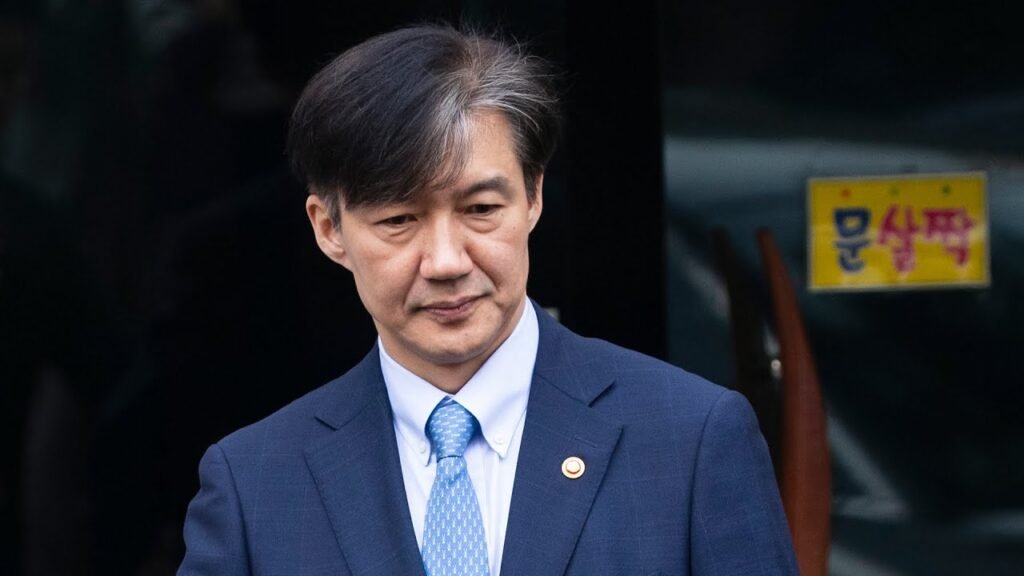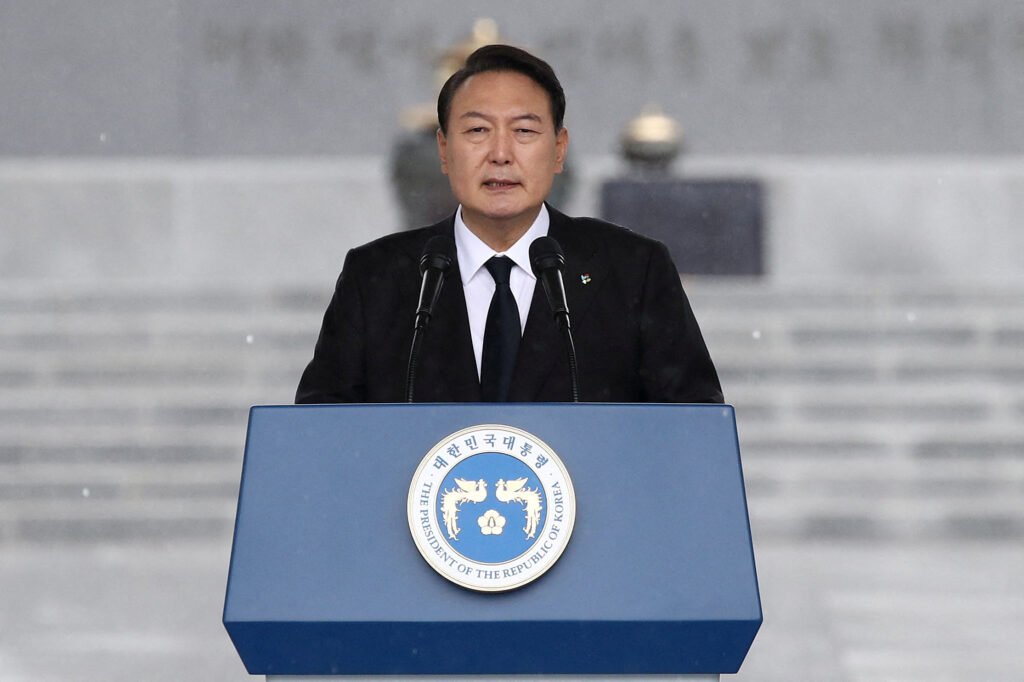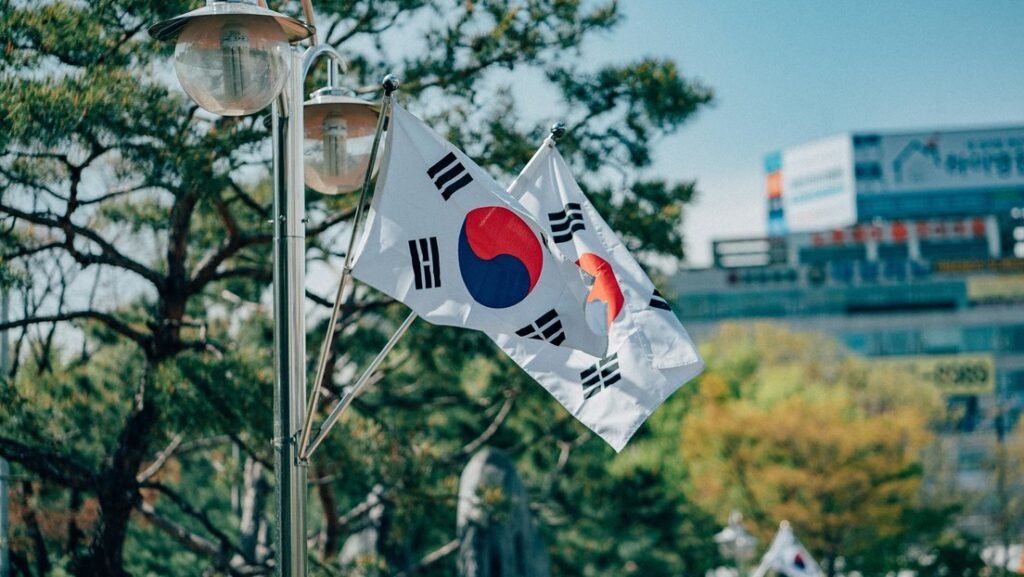South Korea’s Democratic Decline: A Crisis of Bipartisanship and Left-Wing Marginalization
In a resounding message from South Korean voters on April 10, President Yoon Suk-yeol and his conservative People Power Party (PPP) faced a significant defeat in the National Assembly elections, securing only 108 of the 300 seats. This result is a major setback for Yoon, whose administration, mired in controversy and low approval ratings, now faces the likelihood of a weakened presidency with limited influence over the next three years.
The primary victors of the election were the Democratic Alliance, led by the Democratic Party of Korea (DPK) and its allies, which managed to capture 176 seats, including 169 held by DPK members. However, from a left-wing viewpoint, the election results underscore a troubling reality: South Korea’s two dominant parties, the DPK and PPP, uphold a bipartisan system where both align with pro-business interests and engage in frequent scandals. Despite these challenges, South Korea’s left-wing parties remain sidelined and fragmented, unable to present a viable alternative to this bipartisan hegemony.
The Marginalization of the Left
The once-promising Justice Party, which ran in alliance with the Green Party, experienced a stark decline, failing to secure a single seat. This outcome is a sharp contrast to their performance in 2016 and 2020, when they held six seats in the Assembly. In 2020, the combined vote share of the Justice and Green parties approached 10 percent; this time, they received barely over 2 percent.
The Jinbo (“Progressive”) Party, a reconstituted faction from the dissolved Unified Progressive Party (UPP), fared slightly better, winning three seats through an alliance with the DPK. However, this success was largely due to strategic vote-swapping arrangements with the DPK in key districts rather than independent political influence.
The Jinbo Party, which has maintained strong support in labor sectors like construction and gig economy jobs, faces scrutiny for its alignment with the pro-business DPK, as well as its controversial stance on migrant workers and uncritical support for North Korea’s leadership. Both the Justice and Jinbo parties have roots in South Korea’s leftist history, tracing back to the Korean Democratic Labor Party (KDLP), which emerged as the country’s first significant left-wing political movement since the Korean War. The KDLP’s influence peaked in 2004 when it won 13 percent of the vote and elected ten Assembly members, sparking hope for a genuine left-wing presence in South Korea’s political landscape. However, internal divisions and subsequent fragmentation left the left-wing movement weakened and marginalized.
The Fragmented Left and Systemic Obstacles
By the late 2000s, the KDLP had fractured along ideological lines. One faction advocated for a Western-style social democracy, while the other held firm to nationalist, pro–North Korean positions. This split deepened as the party grappled with issues of espionage and accusations against some members of working with North Korean intelligence. These events highlighted the dilemma between maintaining party integrity and combating South Korea’s National Security Law, a controversial piece of legislation often used to suppress dissent under the guise of national security.
After the KDLP’s dissolution in 2014, the left split further into factions, with neither succeeding in challenging the dominance of the DPK or PPP. The Justice Party moved toward identity politics and feminist causes, while the Jinbo Party focused on labor organizing within working-class sectors. However, neither approach has managed to establish a substantial left-wing base in the face of Korea’s entrenched bipartisan structure, exacerbated by institutional hurdles designed to weaken smaller parties.


Cho Kuk’s New Party and South Korea’s Electoral Loopholes
The electoral system itself presents challenges for third parties, especially since reforms four years ago reshaped seat allocations for the proportional vote. Initially intended to support under-resourced parties, this system was co-opted by the DPK, which created small satellite parties to absorb votes that might otherwise have gone to left-wing groups. This maneuvering diverted potential support away from candidates representing the Jinbo or Green-Justice alliance.
One figure who exploited this system was Cho Kuk, a former justice minister embroiled in a college admissions scandal. Despite being convicted of forgery and fraud, Cho rebranded himself as a political martyr persecuted by the powerful South Korean prosecution service. Through his newly formed Rebuilding Korea Party, he secured 12 seats by capturing 24 percent of the proportional vote — a remarkable feat for a new political entity. Cho’s success underscores the inconsistencies in South Korea’s political system, where high-profile scandals sometimes serve to bolster rather than tarnish public figures’ reputations.
Rising Influence of the Prosecution Service
South Korea’s prosecution service has long held significant power, particularly after the end of military rule when it took over roles previously reserved for the state intelligence apparatus. The prosecution service’s power has grown, with each president relying on it to investigate political rivals under the pretense of reform. Yoon Suk-yeol himself rose to prominence as a former Prosecutor General under the previous liberal administration, where he spearheaded anti-corruption cases before joining the PPP and launching his own presidential campaign.
Ironically, Yoon’s campaign relied on an anti-corruption platform, even as he faced scrutiny over his wife’s alleged involvement in a stock manipulation scheme.

As Yoon now faces opposition efforts to initiate impeachment proceedings, his administration illustrates the paradox of a “prosecutorial dictatorship,” in which political actors use the very system they denounce to secure power.
A Left-Wing Alternative?
The 2024 elections revealed the depths of bipartisan dysfunction in South Korea’s government, as the PPP and DPK continue to dominate at the expense of genuine democratic debate. Environmental and economic issues, such as the impact of climate change on food prices, were largely ignored during the election cycle. Instead, the Assembly has been embroiled in partisan conflict, with each party using its influence to shield allies from prosecution.
The weakened state of South Korea’s left leaves it ill-equipped to challenge this system. The Justice Party and Jinbo Party remain dependent on alliances with the DPK to retain any semblance of political power. Without a unified and independent left-wing movement, South Korea’s democracy risks becoming an arena for the unchecked rivalry of its two dominant parties.
As bipartisan corruption grows and climate issues become more pressing, South Korea’s left faces an urgent need to rebuild. A new approach is required, one that can forge alliances with grassroots movements and tackle both economic inequality and environmental threats. The challenge for South Korea’s left is to break free from its historical divisions and present a compelling alternative that resonates with the working class and disenfranchised voters.
If the left cannot rise to this challenge, South Korean politics may remain trapped in an endless cycle of scandal and political stagnation, leaving crucial issues unresolved and democracy weakened. The need for a revitalized, coherent left-wing voice in South Korea is more urgent than ever.


